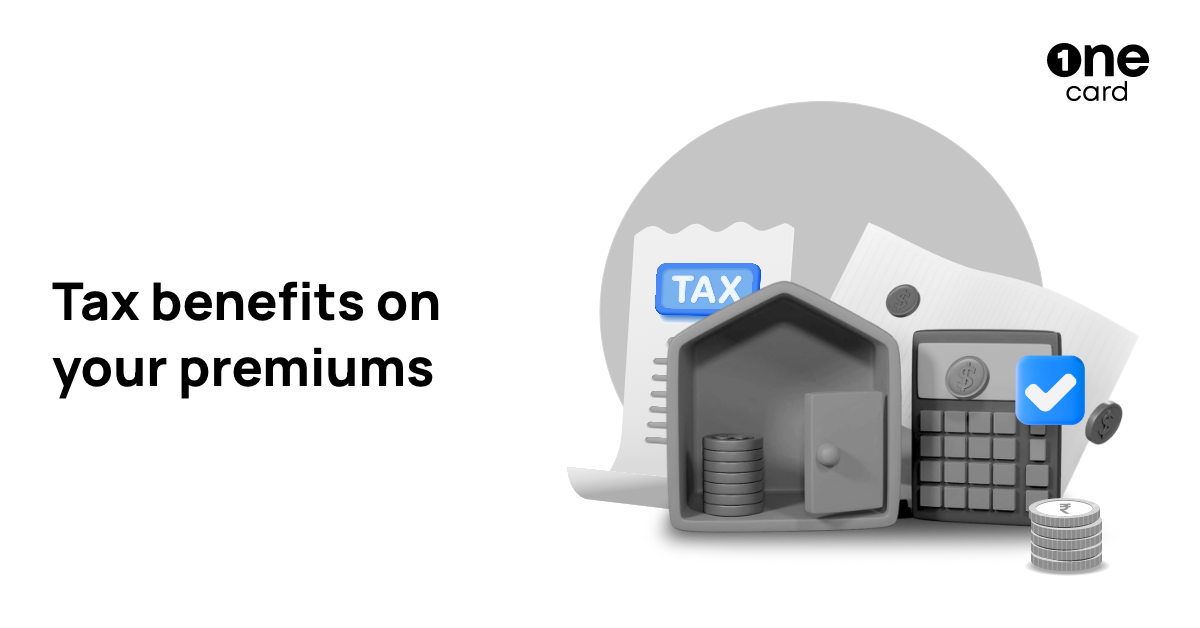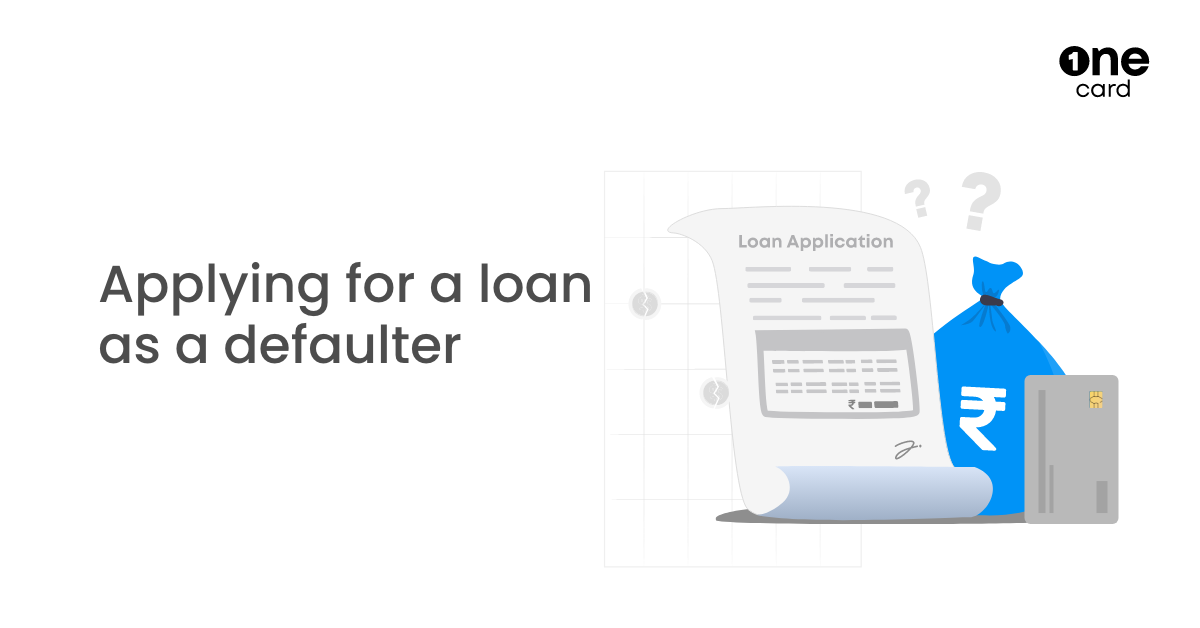Tax Deductions on Insurance - 80C and 80D Tax Deductions
By OneCard | January 17, 2023

Let’s understand how. First things first, Why are we charged income tax?
Under the Income Tax Act or the IT Tax of 1961, any working individual or entity with income over Rs.2,50,000 in a financial year is liable to pay tax. The sources of income may vary like salary, income from property, interest on investments, businesses, etc. To save maximum tax, one can avail of deductions under different sections of the Income Tax Act.
For deductions on insurance, one must familiarize themselves with Section 80 C & Section 80D of the income tax act, 1961. Now let’s dig deeper and understand how much taxes one can save on insurance.
Table of contents:
Understanding 80C Tax Deductions
Section 80C provides deductions on investments up to ₹ 1.5 lakh per year on your taxable income. These can include premium payments made towards Life insurance policies, tuition fees for children’s education, repayment of the principal amount on a home loan, registration fees, and stamp duty for house property.
Speaking of life insurance specifically, these can be paid towards life insurance policies like endowment, whole life, money back policies, term insurance policies, and Unit Linked Insurance Plans. Deductions can be claimed for premiums paid toward insurance for self, spouse, dependent children, and any member of the Hindu Undivided Family.
Understanding Section 80D tax deductions
Under Section 80D, for health insurance paid towards yourself, your children, or your spouse, you can avail of deductions up to Rs 25,000 per year. If you get additional health insurance cover for your aging parents, you get an additional tax benefit of premiums paid up to a limit of Rs 25,000, adding up to Rs 50,000. If your parents are senior citizens above the age of 60, this limit is Rs 50,000 per policy.
Therefore you can secure your financial future and at the same time save tax using Section 80 C & Section 80 D.
Tip
Other than insurance one can also claim deductions on mutual funds, government-backed tax-saving investments like PPF (Public Provident Fund), NPF (National Provident Fund), etc.
Bonus
For additional savings, you can also consider paying your premiums through OneCard . Here’s why:
1. Higher premiums, greater reward points
The higher your premiums, the more reward points you earn, which can be redeemed anytime, anywhere.
2. Auto-pay & never forget a premium
It’s easy to set up auto-pay on OneCard. You only have to provide your card details to your insurance provider and the premium amount will get automatically debited on the due date.
3. Convert into EMIs in case of a cash crunch
If you are unable to pay the premium, you can easily convert it into EMIs using your credit card. OneCard also lets you choose a tenure that suits you the best to pay your EMI.
Also Read : What is Credit card EMI and How Does It Work?
To stay informed on all things credit, keep watching this space.
**Disclaimer: The information provided in this webpage does not, and is not intended to, constitute any kind of advice; instead, all the information available here is for general informational purposes only. FPL Technologies Private Limited and the author shall not be responsible for any direct/indirect/damages/loss incurred by the reader for making any decision based on the contents and information. Please consult your advisor before making any decision.



Sharing is caring 😉